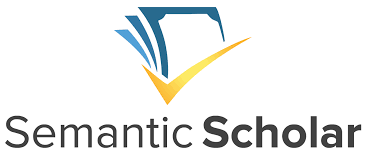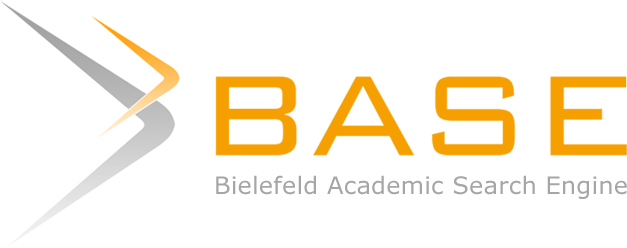Subsidies in the WTO Framework: Types, Effects and Discussion of International Multilateral Transparency
DOI:
https://doi.org/10.33324/dicere.v1i2.839Keywords:
Subsidies, Effects, Transparency, Agreement, ChinaAbstract
While subsidies are a useful economic policy tool, their misuse can lead to significant negative effects. To date, the World Trade Organization (WTO) is the only global body regulating trade, addressing subsidies within its agreements. This study aims to examine the global framework of subsidies under WTO rules and discuss the issue of international transparency. A systematic literature review was conducted using the PRISMA method (2020). The main findings indicate that current WTO disciplines are insufficient to effectively address subsidies, especially in a rapidly changing global context. The study underscores the necessity for updated regulations to stay ahead in managing challenges posed by economies like China. To enhance global economic welfare, it is crucial for the WTO to adopt more robust and adaptive subsidy regulations that can respond to the evolving economic landscape.
Downloads
References
Anderson, K. (2016). Contributions of the GATT/WTO to global economic welfare: empirical evidence. Journal of economic surveys, 30(1), 57-92. Scopus. doi: 10.1111/joes.12087 DOI: https://doi.org/10.1111/joes.12087
Barbosa Mariño, J. D., Bernal Corredor, D., Figueroa Sierra & Asociados, & Godoy & Hoyos Abogados. (2007). Las subvenciones prohibidas en el Acuerdo sobre Subvenciones y Medidas Compensatorias de la OMC. International Law: Revista Colombiana de Derecho Internacional, (9), 155-203. https://www.redalyc.org/pdf/824/82400905.pdf
Bhala, R., & Deuckjoo, N. (2019). The WTO´S under-capacity to deal with global over-capacity. 14(1), 1-32. Retrieved Febrero 17, 2024, from file:///Users/sofiacordero/Downloads/SSRN- id3362161.pdf
Borlini, L. (2020). When the Leviathan goes to the market: A critical evaluation of the rules governing state-owned enterprises in trade agreements. Leiden Journal of International Law, 33, 313-334. Web of Science. doi:10.1017/S0922156519000761 DOI: https://doi.org/10.1017/S0922156519000761
Borlini, L. (2023). The Covid 19 Exogenous Shock and the Crafting of New Multilateral Trade Rules on Subsidies and State Enterprises in the Post-Pandemic World. Special Issue: The Resurgence of the State as an Economic Actor–International Trade Law and State Intervention in the Economy in the Covid Era, (24), 72-101. Web of Science. doi:10.1017/glj.2023.12 DOI: https://doi.org/10.1017/glj.2023.12
Brown, C. P., & Hillman, J. A. (2022). WTO’ing a Resolution to the China Subsidy Problem. Journal of International Economic Law, 22(4), 557-578. Web of science. DOI10.1093/jiel/jgz035 DOI: https://doi.org/10.1093/jiel/jgz035
Cisneros Montemayor, A., Ota B, Y., Bailey C, M., C Hicks, C., Rogers, A., Sumaila, R., & Virdin,
J. (2020). Changing the narrative on fisheries subsidies reform: Enabling transitions to achieve SDG 14.6 and beyond. Marine Policy, 117. Scopus. https://doi.org/10.1016/j.marpol.2020.103970 DOI: https://doi.org/10.1016/j.marpol.2020.103970
Collins, D. A., & Park, T. J. (2017). Deafening Silence or Noisy Whisper: Omission Bias and Foregone Revenue Under the WTO Agreement on Subsidies and Countervailing Measures. Journal of World Trade, 1-24. https://papers.ssrn.com/sol3/papers.cfm?abstract_id=2964966 DOI: https://doi.org/10.54648/TRAD2017042
Collins-Williams, T., & Wolfe, R. (2010). Transparency as a trade policy tool : the WTO’s cloudy windows. World Trade Review, 9(4), 551-581. doi:10.1017/S1474745610000303 DOI: https://doi.org/10.1017/S1474745610000303
Dhingra, S., & Meyer, T. (2021). Leveling the Playing Field: Industrial Policy and Export-Contingent Subsidies in India–Export Related Measures. World Trade Review, (20), 606–622. Web of Science. doi:10.1017/S147474562100032X DOI: https://doi.org/10.1017/S147474562100032X
Evenett, S. J., & fritz, J. (2021). Subsidies and market access: towards an inventory of subsidies by China, the EU and USA. file:///Users/sofiacordero/Downloads/GTA_28_-
_Subsidies_and_Market_Access.pdf
Florini, A. (2007). The Battle Over Transparency. In the Right to Know: Transparency for an Open World. (pp. 1-16). https://doi.org/10.7312/flor14158-intro DOI: https://doi.org/10.7312/flor14158-intro
Fondo Monetario Internacional, Organización para la Cooperación y el Desarrollo Económicos, Organización Mundial del Comercio, & Banco Mundial. (2022). Subvenciones, Comercio Y Cooperación Internacional.
https://www.wto.org/spanish/res_s/booksp_s/repintcoosub22_s.pdf
Formenti, L. (2022). Assessing transparency in fisheries subsidies: A notification-driven analysis. DOI: https://doi.org/10.1016/j.marpol.2020.104152
Marine Policy, 136, 1-11. https://doi.org/10.1016/j.marpol.2020.104152 DOI: https://doi.org/10.1016/j.marpol.2020.104152
Gale, F. (2013). Growth and Evolution in China’s Agricultural Support Policies. Economic Research Service, 153, 3-60.
https://www.ers.usda.gov/webdocs/publications/45115/39368_err153.pdf?v=41491
Gulotty, R. (2023). WTO Subsidy Disciplines. World Trade Review, (22), 330-341. Web of Science. doi:10.1017/S1474745622000118 DOI: https://doi.org/10.1017/S1474745622000118
Hoekman, B., & Nelson, D. (2020). Rethinking international subsidy rules. The World Economy. DOI: https://doi.org/10.2139/ssrn.3630870
DOI: 10.1111/twec.13022 DOI: https://doi.org/10.1111/twec.13022
Hoekman, B. H. X. T. a. R., Wolfe, R., & Tu, X. (n.d.). China and the WTO Reform. Robert Schuman Centre for Advanced Studies Global Governance Programme-477, 59. SSRN. http://dx.doi.org/10.2139/ssrn.426
Hopewell, K. (2019). US-China conflict in global trade governance: the new politics of agricultural subsidies at the WTO. Review of International Political Economy. Scopus. DOI 10.1080/09692290.2018.1560352 DOI: https://doi.org/10.2139/ssrn.3758580
Instituto Nacional de Estadísticas y Censos (INEC). (2012). CIIU 4.0. Instituto Nacional de Estadística y Censos. Retrieved April 04, 2024, from https://aplicaciones2.ecuadorencifras.gob.ec/SIN/descargas/ciiu.pdf
Josling, T., & Tangermann, S. (1999). Implementation of the WTO Agreement on Agriculture and Developments for the Next Round of Negotiations. European Review of Agricultural Economics, 26, 371-388. Retrieved Febrero 22, 2024, from https://econpapers.repec.org/article/ouperevae/v_3a26_3ay_3a1999_3ai_3a3_3ap_3a371- 88.htm DOI: https://doi.org/10.1093/erae/26.3.371
Kalouptsidi, M. (2018). Detection and Impact of Industrial Subsidies: The Case of Chinese Shipbuilding. Review of Economic Studies, (85), 1111-11588. doi:10.1093/restud/rdx050 DOI: https://doi.org/10.1093/restud/rdx050
Karim, R. (2014). Transparency is the Most Important Governance Issue in the WTO Subsidy Control. SSRN Electronic Journal. http://dx.doi.org/10.2139/ssrn.2498863 DOI: https://doi.org/10.2139/ssrn.2498863
Kravcakova Vozarova, I., & Kotulic, R. (2015). Quantification of the effect of subsidies on the production performance of the Slovak agriculture. Procedia Economics and Finance, (39), 298- 304. Scopus. doi: 10.1016/S2212-5671(16)30327-6 DOI: https://doi.org/10.1016/S2212-5671(16)30327-6
Kumar, R., Ravinesh Kuma, R., Stauvermann, P. J., & Arora, P. (2020). Effect of Fisheries Subsidies Negotiations on Fish Production and Interest Rate. Journal of Risk and financial Management. https://doi.org/10.3390/jrfm13120297 DOI: https://doi.org/10.3390/jrfm13120297
Lennan, M., & Switzer, S. (2023). Current Legal Developments World Trade Organization. The International Journal of Marine and Coastal Law, 38, 161-177. Scopus 10.1163/15718085- DOI: https://doi.org/10.1163/15718085-bja10116
bja10116
Li, S., & Tu, X. (2020). Reforming WTO Subsidy Rules: Past. Experiences and Prospects. Journal of World Trade, 54(6), 853–888. Retrieved Febrero 26, 2024, from http://ciwto.uibe.edu.cn/docs/2021-07/0cc6c52556b94f299991299e5fd53801.pdf DOI: https://doi.org/10.54648/TRAD2020037
Lim, S. S., Kim, C. M., Kim, D., Sung, K., & Lee, E. S. (2022). The road ahead and the future of eliminating fisheries subsidies under the WTO. Web of conferences, 348. DOI: https://doi.org/10.1051/e3sconf/202234800014
https://doi.org/10.1051/e3sconf/202234800014 DOI: https://doi.org/10.1051/e3sconf/202234800014
Lino, A. (2023). Disciplining Subsidies Through Free Trade Agreements (FTAs): Emerging Developments in Japan’s FTAs and Their Implications. German Law Journal, (24), 179-198. Web of Science. doi:10.1017/glj.2023.6 DOI: https://doi.org/10.1017/glj.2023.6
Low, P. (2022). The WTO in Crisis: Closing the Gap between Conversation and Action or Shutting Down the Conversation? World Trade Review, 21(4), 274–290. Web of Science. doi:10.1017/S1474745622000064 DOI: https://doi.org/10.1017/S1474745622000064
Mera, Rabobank, C. (2017). China’s selling may keep food prices low this year. Retrieved May 20, 2024, from https://www.ft.com/content/453b1857-8232-3995-92e2-b090a0668faa
Meyer, T., & Dhingra, S. (2021). Leveling the Playing Field: Industrial Policy and Export-Contingent Subsidies in India-Export Related Measures. World Trade Review, (20), 606-622. doi:10.1017/S147474562100032X DOI: https://doi.org/10.1017/S147474562100032X
Michalek, J. J. (2004). Subsidies in the context of the World Trade Organization. In Reflets et perspectives de la vie économique 2004/1: Les subventions (pp. 25-38). De Boeck Supérieur. DOI10.3917/rpve.431.0025 DOI: https://doi.org/10.3917/rpve.431.0025
Organización Mundial del Comercio. (n.d.). OMC | La OMC en pocas palabras. World Trade Organization. Retrieved March 2, 2024, from https://www.wto.org/spanish/thewto_s/whatis_s/inbrief_s/inbr_s.htm
Organización Mundial del Comercio. (2006). Informe sobre el comercio mundial: Definición de las subvenciones. OMC. Retrieved March 3, 2024, from https://www.wto.org/spanish/res_s/booksp_s/anrep_s/wtr06-2b_s.pdf
Organización Mundial del Comercio. (2007). Transparency. In World trade report: Six decades of multilateral trade cooperation: What have we learnt? (p. 388). https://www.wto.org/english/res_e/booksp_e/anrep_e/world_trade_Report07_e.pdf
Organización Mundial del Comercio. (2021). Notification provisions under the agreement on subsidies and countervailing measures (12). Committee on Subsidies and Countervailing Measures. Retrieved 01 12, 2023, from https://docs.wto.org/dol2fe/Pages/SS/directdoc.aspx?filename=q:/G/SCM/W546R12.pdf&Op en=True
Organización mundial del Comercio. (n.d.). OMC - Negociaciones sobre las subvenciones a la pesca. World Trade Organization. Retrieved May 2, 2024, from https://www.wto.org/spanish/tratop_s/rulesneg_s/fish_s/fish_s.htm
Organización Mundial del Comercio. (2008). WTR 2008_S.indb. World Trade Organization. Retrieved febrero 22, 2024, from https://www.wto.org/spanish/res_s/booksp_s/anrep_s/world_trade_report08_s.pdf
Organización Mundial del Comercio. (s.f). Subvenciones y Medidas compensatorias: explicación. World Trade Organization. Retrieved March 15, 2024, from https://www.wto.org/spanish/tratop_s/scm_s/subs_s.htm
Organización Mundial del Comercio. (s.f). WTO Glossary. worldtradeorganization.com. Retrieved March 15, 2024, from https://www.wto.org/english/thewto_e/glossary_e/transparency_e.htm
Organización para la Cooperación y Desarrollo Económico. (n.d.). Subsidies, Competition and Trade Retrieved March 4, 2024, from https://web-archive.oecd.org/2022-11-10/645220-subsidies- competition-and-trade-2022.pdf.
Organización para la Cooperación y el Desarrollo Económico. (2023). In OCDE-FAO Perspectivas Agrícolas 2023-2032. Food & Agriculture Org. https://doi.org/10.1787/19991142. DOI: https://doi.org/10.1787/19991142
Oxford´s University Press. (s.f). subsidy noun - Definition, pictures, pronunciation and usage notes Oxford Advanced Learner's Dictionary at OxfordLearnersDictionaries.com. Oxford Learner's Dictionaries. Retrieved February 20, 2024, from https://www.oxfordlearnersdictionaries.com/definition/english/subsidy?q=subsidy
Page, M. J., McKenzie, J. E., Bossuyy, P. M., Boutron, I., Hoffmann, T. C., Mulrow, C. D., Shamseer, L., Tezlaff, J. M., All, E. A., Brennan, S. E., Chou, R., Glanvillei, J., Grimshaw, J., Lalu, M., Hróbjartsson, A., Li, T., Loder, E. W., Wilson, E. M., McDonald, S., & McGuiness, L. A. (2020). Declaración PRISMA 2020: una guía actualizada para la publicación de revisiones sistemáticas. Revista española de cardiología, 74(9). DOI: https://doi.org/10.1016/j.recesp.2021.06.016 DOI: https://doi.org/10.1016/j.rec.2021.07.010
Robert Wolfe. (2013). World Trade Organization Economic Research and Statistics Division Letting the sun shine in at the WTO: How transparency brings. World Trade Organization. https://www.wto.org/english/res_e/reser_e/ersd201303_e.pdf
Sacerdoti, G., & Borlini, L. (2023). Systemic Changes in the Politicization of the International Trade Relations and the Decline of the Multilateral Trading System. German Law Journal, (24), 17- 44. Web of Science. doi:10.1017/glj.2023.10 DOI: https://doi.org/10.1017/glj.2023.10
Schrank, W. (2003). Introducing fisheries subsidies. https://www.fao.org/3/y4647e/y4647e.pdf Schuhbauer, A., Chuenpagdee, R., Cheung, W., Geer, K., & Sumaila, R. U. (2017, Agosto). How
subsidies affect the economic viability of small-scale fisheries. Marine Policy, 82, 114-121. DOI: 10.1016/j.marpol.2017.05.013 DOI: https://doi.org/10.1016/j.marpol.2017.05.013
Schuhbauer, A., Skerrit, D., Ebrahim, N., Le Manach, F., & Sumaila, R. (2020, Septiembre 29). The Global Fisheries Subsidies Divide Between Small- and Large-Scale Fisheries. Sec. Marine Fisheries, Aquaculture and Living Resources, 7(539214). Volume 7 - 2020 | https://doi.org/10.3389/fmars.2020.539214 DOI: https://doi.org/10.3389/fmars.2020.539214
Sengupta, R. (2022). Fisheries subsidies negotiations towards the WTO’s 12th Ministerial Conference: Considerations for developing countries. Third World Network. https://ourworldisnotforsale.net/2022/TWN_Fisheries.pdf
Shaffer, G., Wolfe, R., & Le, V. (2015, Diciembre 17). Can Informal Law Discipline Subsidies? Journal of International Economic, (18), 711-741. Scopus. https://www.scopus.com/record/display.uri?eid=2-s2.0- 84966430918&origin=resultslist&sort=plf- f&src=s&sid=b2c430a8e72e7f42e3ecd6c0dbe0eb5c&sot=b&sdt=cl&cluster=scofreetoread% 2C%22all%22%2Ct&s=TITLE-ABS- KEY%28%22WTO%22+AND+%22SUBSIDIES%22%29&sl=36&sessionSea
Singh, G. (2017). Subsidies in the Context of the WTO's Free Trade System: A Legal and Economic Analysis. Springer International Publishing. DOI 10.1007/978-3-319-62422-8
Skerrit, D. J., & Sumaila, R. (2021). Broadening the global debate on harmful fisheries subsidies through the use of subsidy intensity metrics. Marine Policy, 128, 1-8. Scopus. https://doi.org/10.1016/j.marpol.2021.104507 DOI: https://doi.org/10.1016/j.marpol.2021.104507
Steger, D. (2010). The Subsidies and Countervailing Measures Agreement: Ahead of its Time or Time for Reform? Journal of World Trade. https://papers.ssrn.com/sol3/papers.cfm?abstract_id=1915799 DOI: https://doi.org/10.54648/TRAD2010029
Sumaila, R., Ebrahim, N., Schunbahuer, A., Skerrit, D., Li, Y., Kim, H. S., Mallory, T., Lam, V. W.L., & Pauly, D. (2019). Updated estimates and analysis of global fisheries subsidies. Marine Policy, 109. https://doi.org/10.1016/j.marpol.2019.103695 DOI: https://doi.org/10.1016/j.marpol.2019.103695
Tangerman, S. (2002). Europe's Agricultural Policies and the Millennium Round. The World Economy, 22(9), 1155-1178. https://doi.org/10.1111/1467-9701.00253 DOI: https://doi.org/10.1111/1467-9701.00253
Trefler, D. (2019). The China-OECD trade divide: building bridges. China Economic Journal, 12, 195-207. https://doi.org/10.1080/17538963.2019.1603644 DOI: https://doi.org/10.1080/17538963.2019.1603644
Van Heuvelen, E., & Fondo Monetario Internacional. (2023). Subsidy Wars: Cooperation and common understanding could dial back trade tensions. Trade, Disrupted, 60(2), 54-56.
Wang, R., & Popova, L. (2023). International trade disputes related to fish products and Agreement on Fisheries Subsidies: Key regulatory issues and litigation outlook. World Economy, 39(3). DOI: https://doi.org/10.21638/spbu05.2023.302 DOI: https://doi.org/10.21638/spbu05.2023.302
Wang, X., Li, D., & Yu, Y. (2022). Current Situation and Optimization Countermeasures of Cotton Subsidy in China Based on WTO Rules. Journal of Agriculture, 1245. https://doi.org/10.3390/ agriculture12081245 DOI: https://doi.org/10.3390/agriculture12081245
Wuttke, J. (2017). The Dark Side of China’s Economic Rise. Global Policy, 8(4), 62-71. doi: 10.1111/1758-5899.12439 DOI: https://doi.org/10.1111/1758-5899.12439
Xiang, H., & Kuang, Y. (2019, Noviembre 13). Who benefits from China’s coal subsidy policies?A computable partial equilibrium analysis. Resource and Energy Economics, 59. https://doi.org/10.1 DOI: https://doi.org/10.1016/j.reseneeco.2019.101124
Downloads
Published
How to Cite
Issue
Section
License

This work is licensed under a Creative Commons Attribution-NonCommercial-ShareAlike 4.0 International License.
This article is published under the Copyright and Licensing terms of this journal.












